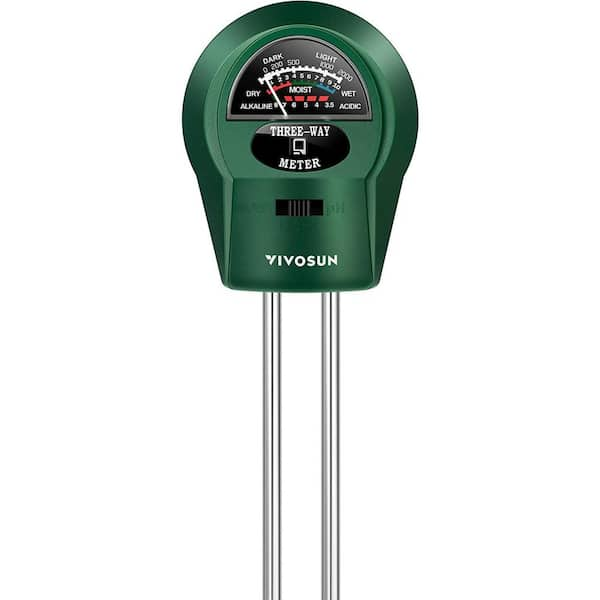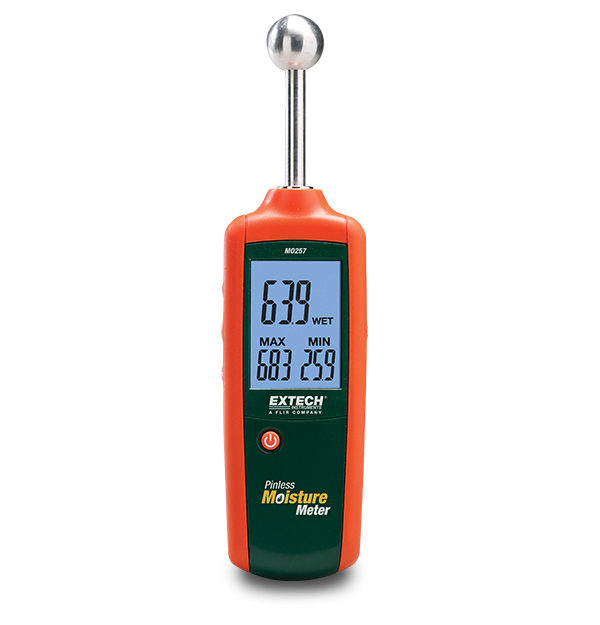The Scientific Research Behind Moisture Meters: Exactly How They Function and Why They're Vital
The Scientific Research Behind Moisture Meters: Exactly How They Function and Why They're Vital
Blog Article
The Ultimate Overview to Dampness Meters: A Comprehensive Summary and Just How They Can Conserve You Money
In the world of structure upkeep, building and construction, and various industries, the relevance of accurately determining dampness degrees can not be overstated. Moisture meters act as crucial tools in finding and checking moisture content in materials, assisting in stopping pricey problems and guaranteeing the high quality of items. Comprehending the subtleties of various kinds of moisture meters, their applications, and the potential cost-saving benefits they provide can be a game-changer for companies and specialists alike. Uncovering how these gadgets can not only improve procedures yet additionally add to monetary cost savings is a trip worth starting.
Types of Moisture Meters
Various kinds of moisture meters are available for different applications in numerous markets. One usual kind is the pin-type wetness meter, which gauges the electrical resistance in between two pins inserted right into a product. This type appropriates for timber, drywall, and various other building products. Pinless dampness meters, on the various other hand, usage electro-magnetic sensor plates to scan a larger location without causing damage to the material's surface. Moisture Meter. These meters are excellent for swiftly analyzing wetness levels in huge locations such as walls and floorings.

Moreover, there are likewise specialty dampness meters created for specific materials like dirt, hay, or grain. These meters supply accurate dampness analyses customized to the unique buildings of the product being checked. Infrared dampness meters determine the thermal properties of a product to determine its wetness web content non-invasively, making them valuable for applications where pin or pinless meters may not appropriate. Comprehending the different kinds of moisture meters available can help industries select one of the most proper tool for their details wetness dimension demands.

Benefits of Using Wetness Meters
Dampness meters supply indispensable advantages in properly assessing and monitoring moisture levels in diverse materials and settings. One of the primary benefits of making use of dampness meters is the avoidance of prospective damage caused by excess wetness.
In addition, making use of moisture meters can lead to raised energy effectiveness. In farming settings, dampness meters play a crucial duty in enhancing crop returns by making it possible for farmers to check soil dampness degrees and make informed irrigation decisions.
Exactly How to Select the Right Wetness Meter
When selecting a dampness meter, it's vital to make certain that the meter is appropriate for the certain product you will be testing. Different products have varying electrical buildings that can impact moisture readings, so picking a meter designed for your material is essential for accurate results. By meticulously assessing these variables, you can select a moisture meter that meets your requirements and gives accurate wetness dimensions for your tasks.
Correct Methods for Moisture Meter Use

Cost Cost Savings With Dampness Meter Applications
Just how can the strategic use of dampness meters lead to substantial cost financial savings throughout numerous sectors? Dampness meters play a critical role in expense savings by stopping possible damage and ensuring quality control in different markets. In the farming industry, wetness meters aid in figuring out the optimum time for collecting plants, stopping excess or over-drying moisture that can impact the end product's top quality. This specific monitoring assists farmers stay clear of unnecessary losses and maximize their return.
Similarly, in building, dampness meters aid protect against pricey problems by detecting moisture levels in structure products, such as timber or concrete, which can cause structural issues otherwise useful link addressed promptly. By identifying problem locations beforehand, professionals can take rehabilitative procedures to stay clear of comprehensive fixings or substitutes, ultimately conserving money and time.
Moreover, in the food handling industry, moisture meters are crucial for monitoring item quality and making sure compliance with safety and security laws. By precisely measuring dampness web content you can try here in food, producers can prevent putridity, maintain freshness, and reduce waste, leading to considerable expense financial savings. Overall, the calculated application of wetness meters is a useful financial investment that can result in substantial expense decreases and enhanced performance across different sectors.
Final Thought
In final thought, wetness meters are important devices for measuring and discovering dampness degrees in different products. By utilizing the ideal moisture meter and following appropriate strategies, individuals can efficiently protect against pricey problems created by excess wetness.
Moisture meters serve as indispensable tools in finding and keeping an eye on moisture material in products, helping in protecting against expensive damages and guaranteeing the top quality of products. Infrared dampness meters determine the thermal properties of a material to establish its moisture content non-invasively, making them useful for applications where pin or pinless meters may not be appropriate.Moisture meters use indispensable advantages in precisely keeping an eye on and assessing wetness degrees in diverse materials and atmospheres. In agricultural setups, wetness meters play a vital role in optimizing plant returns by allowing farmers to keep track of soil moisture degrees and make educated irrigation choices.In final thought, dampness meters are important tools for gauging and discovering dampness degrees in various products.
Report this page